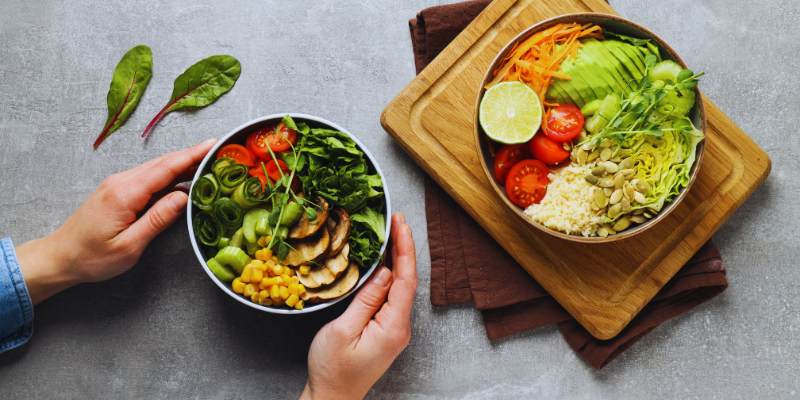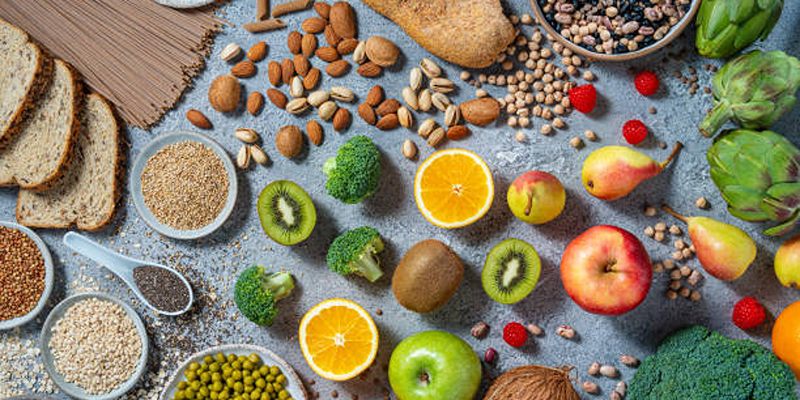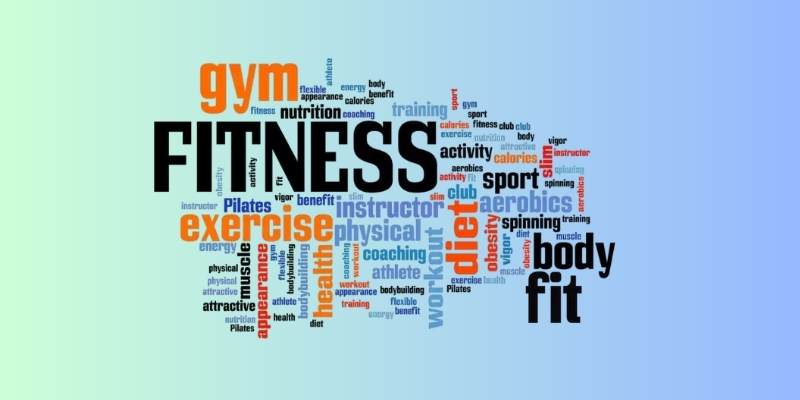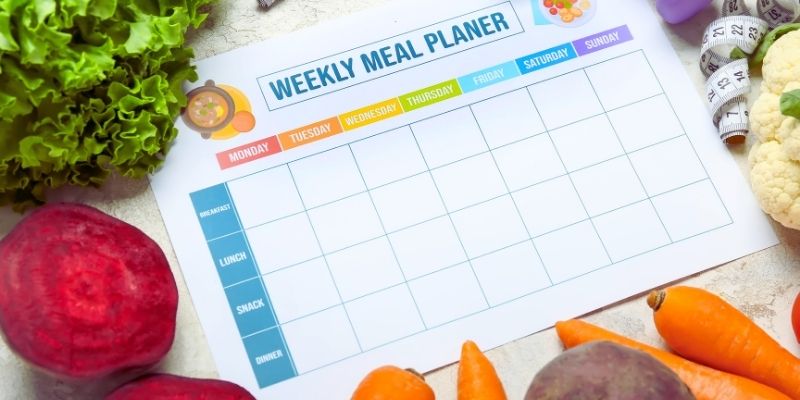Fiber is a crucial part of a healthy diet, providing numerous benefits like improved digestion, stabilized blood sugar levels, and maintaining a healthy weight. Integrating fiber-rich foods into your daily meals isn’t just beneficial—it’s essential for long-term health and energy levels. Here are five fiber foods you can’t live without.
Why Fiber Is So Important for Your Body
Fiber is critical in ensuring that your intestines are in good condition. It aids the flow of food through your intestines and stomach without complications and ensures regular bowel movement. Consuming the right amount of fiber every day aids in energy levels, satisfaction, and maintains your heart and bowel in their prime.
Now, we are going to look at five very important fiber-rich foods that you ought to take daily. All of them can be obtained quickly and cheaply and are beneficial to health in general.
1. Oats – The Perfect Start to Your Morning
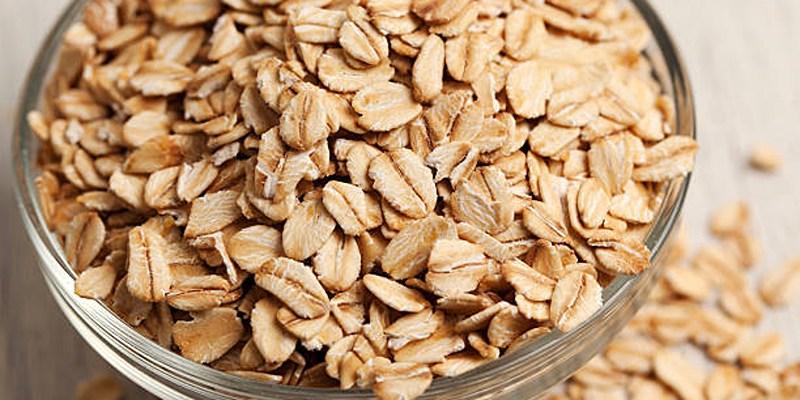 Oats are a nutritional powerhouse and an excellent source of dietary fiber, particularly beta-glucan, which supports heart health. Starting your day with a bowl of oats provides sustained energy and keeps you feeling full longer.
Oats are a nutritional powerhouse and an excellent source of dietary fiber, particularly beta-glucan, which supports heart health. Starting your day with a bowl of oats provides sustained energy and keeps you feeling full longer.
Why Oats Are a Fiber Hero
Oats are among the healthiest grains you can eat. They are high in a type of fiber called beta-glucan, which helps reduce bad cholesterol and keeps you full longer. One bowl of oatmeal in the morning can give your digestive system a gentle start and help maintain a steady energy level throughout the day.
How to Eat More Oats
- Eat them as hot oatmeal with fruits and nuts.
- Use them in smoothies or as a base for homemade granola.
- Bake oat muffins or oat bars for a fibre-rich snack.
Try to choose plain oats instead of flavoured ones that are often packed with sugar.
2. Lentils – A Plant-Based Powerhouse
Lentils are a nutritional powerhouse packed with protein, fiber, and essential vitamins and minerals. These tiny legumes are not only versatile but also an excellent plant-based alternative to meet your dietary needs.
What Makes Lentils So Special
Lentils are packed with both soluble and insoluble fibre. Just one cup of cooked lentils contains about 15 grams of fibre, making them one of the best sources of plant-based fibre. They also offer protein, iron, and complex carbs—all important for energy and well-being.
How to Add Lentils to Your Diet
- Cook lentil soup with vegetables and mild spices.
- Add lentils to rice or salads for extra texture and nutrition.
- Use mashed lentils in patties or as a meat substitute in wraps.
Lentils are versatile and budget-friendly, which makes them ideal for daily meals.
3. Apples – A Sweet and Crunchy Source of Fiber
Apples are a delicious and convenient way to boost your fiber intake while enjoying a naturally sweet treat. Packed with vitamins, antioxidants, and hydration, they make an excellent snack for all ages.
What You Gain from Eating Apples
An apple a day truly can support your health. Apples contain both soluble and insoluble fibre. The soluble fibre helps lower cholesterol, while the insoluble fibre supports digestion. Eating apples with their skin gives you the most fibre and nutrients.
Simple Ways to Enjoy Apples
- Slice apples for a snack or dip them in natural peanut butter.
- Add chopped apples to oatmeal or cereals.
- Include apple slices in salads for a fresh crunch.
Choose fresh, whole apples instead of apple juice or sweetened applesauce, which lack fibre.
4. Chia Seeds – Tiny Seeds with Big Benefits
Chia seeds may be small, but they are packed with essential nutrients that offer impressive health benefits. These tiny seeds are an excellent source of fiber, omega-3 fatty acids, protein, and various micronutrients.
Why Chia Seeds Are a Superfood
Though tiny in size, chia seeds are loaded with fibre. Just two tablespoons offer around 10 grams of fibre. They absorb water and expand in your stomach, helping you feel full and satisfied. Chia seeds also contain healthy fats and protein, supporting both digestion and energy.
How to Use Chia Seeds Daily
- Mix into yoghurt, smoothies, or overnight oats.
- Add them to baked goods or sprinkle on salads.
- Make a simple chia pudding with milk and fruit.
Let the seeds soak in water or liquid before eating—they expand and create a gel-like texture that’s great for your gut.
5. Broccoli – A Green Giant for Your Gut
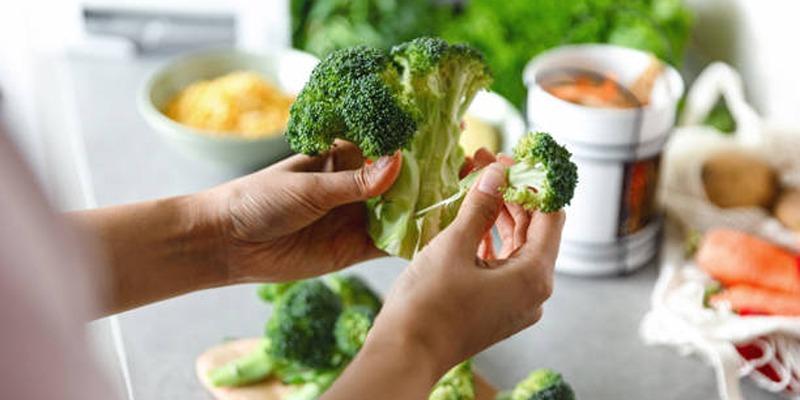 Broccoli is a powerhouse vegetable packed with nutrients that promote a healthy gut. Rich in fiber, antioxidants, and bioactive compounds, it supports digestion and strengthens your gut microbiome.
Broccoli is a powerhouse vegetable packed with nutrients that promote a healthy gut. Rich in fiber, antioxidants, and bioactive compounds, it supports digestion and strengthens your gut microbiome.
What Makes Broccoli a Fiber Champion
Broccoli is not just rich in fibre but also in vitamins, minerals, and antioxidants. One cup of cooked broccoli has about 5 grams of fibre. It also helps promote a healthy gut by feeding good bacteria in your digestive system.
Easy Ways to Eat More Broccoli
- Steam or roast broccoli and serve as a side.
- Add chopped broccoli to soups, pasta, or rice dishes.
- Mix it with other vegetables in a stir-fry or salad.
Try not to overcook it—lightly steaming keeps its nutrients and fibre content strong.
How to Get the Most Out of Your Fiber Foods
- Drink enough water: Fibre needs water to move smoothly through your digestive system and prevent bloating.
- Increase fibre slowly: Add high-fibre foods gradually to help your body adjust without discomfort.
- Choose whole foods: Eat natural sources like fruits, vegetables, legumes, and whole grains instead of processed snacks.
- Include both fibre types: Combine soluble fibre (e.g., oats, apples) and insoluble fibre (e.g., brown rice, broccoli) for complete gut support.
- Be consistent daily: Include small amounts of fibre in every meal for better long-term results.
- Stay physically active: Light movement like walking helps fibre work better and keeps digestion regular.
Pairing Fiber with Other Nutrients
A healthy diet is more than just fibre. While fibre is important for digestion and gut health, it works best alongside other nutrients. Pair fibre-rich foods with protein sources like lean meats, eggs, beans, or tofu. Include healthy fats from avocados, nuts, seeds, and olive oil to support brain and heart health.
Adding colourful fruits and vegetables ensures you get essential vitamins, minerals, and antioxidants for your immune system and overall wellbeing. This balanced approach nourishes your body and helps maintain steady energy levels throughout the day.
Final Thoughts
Adding fibre-rich foods like oats, lentils, apples, chia seeds, and broccoli to your meals can do wonders for your health. These foods are not only filling and satisfying but also help with digestion, weight management, and long-term well-being. Small changes lead to big results. Start with one new fibre food each day, and you’ll soon notice a difference in how you feel, inside and out.

